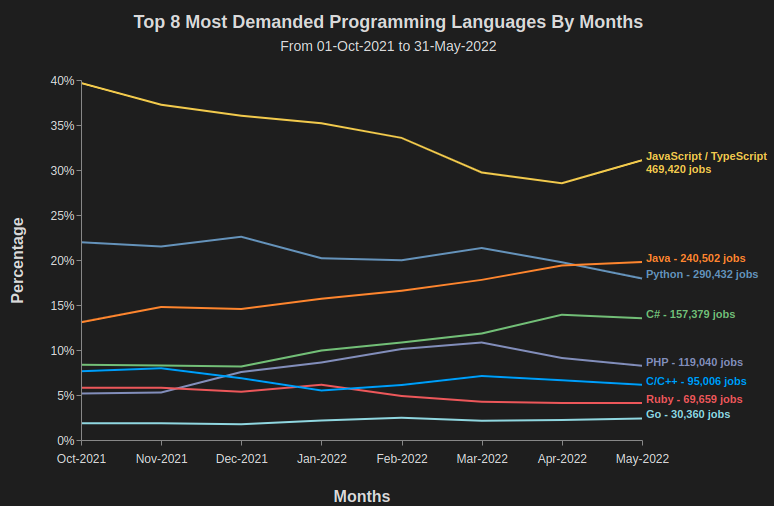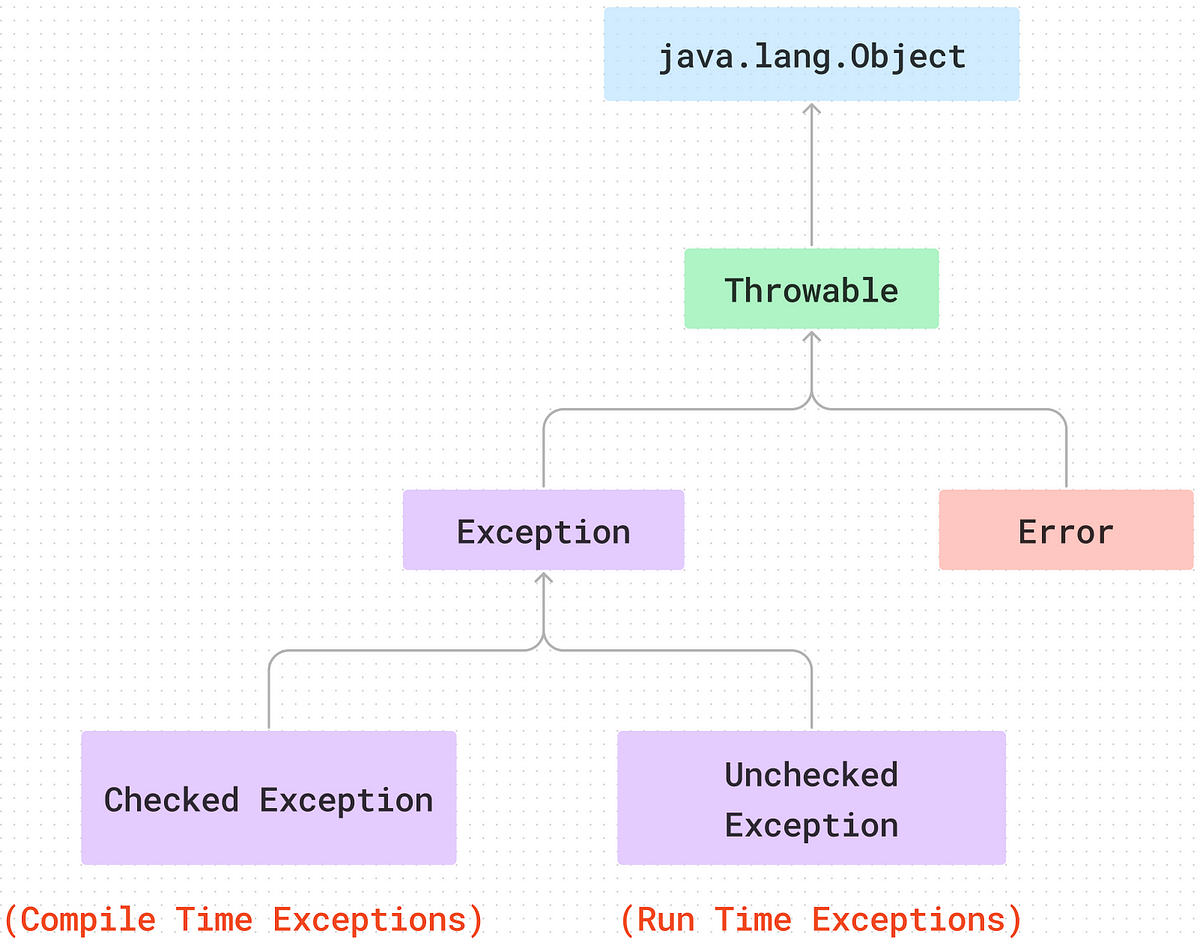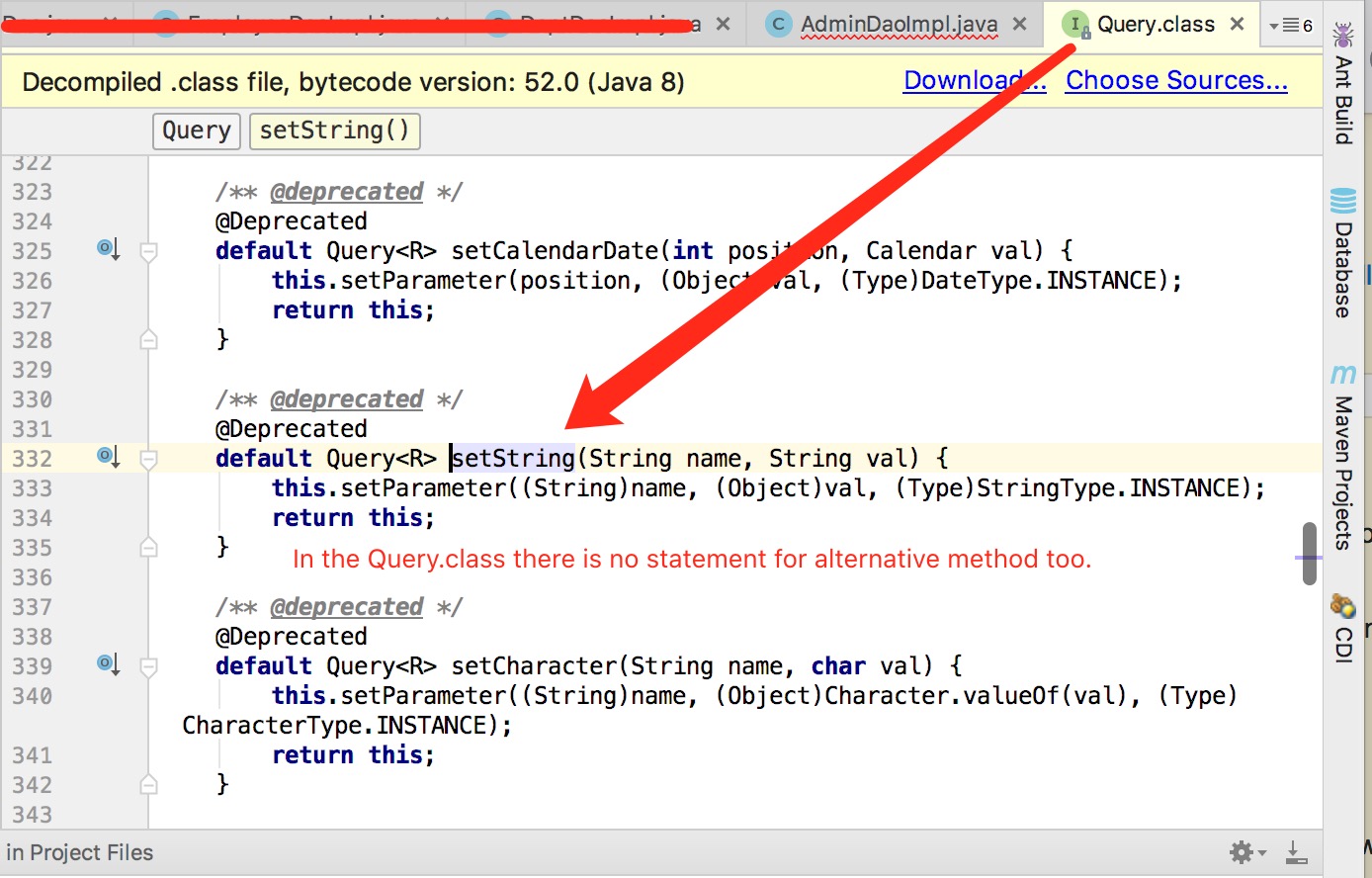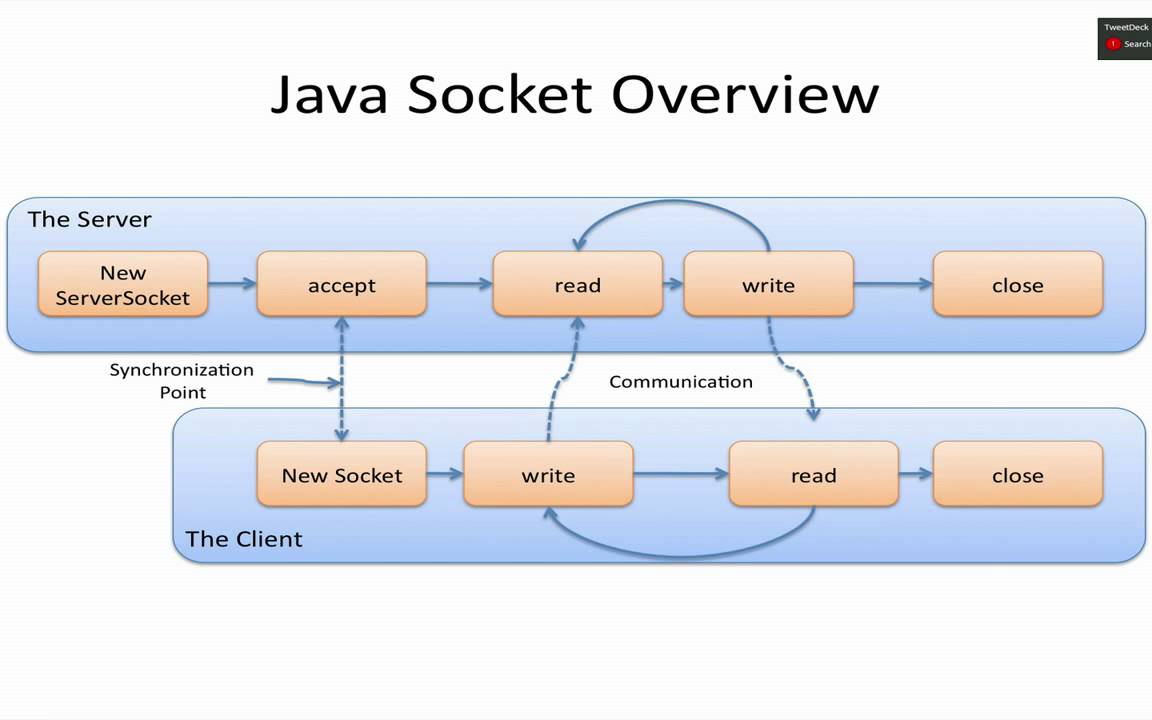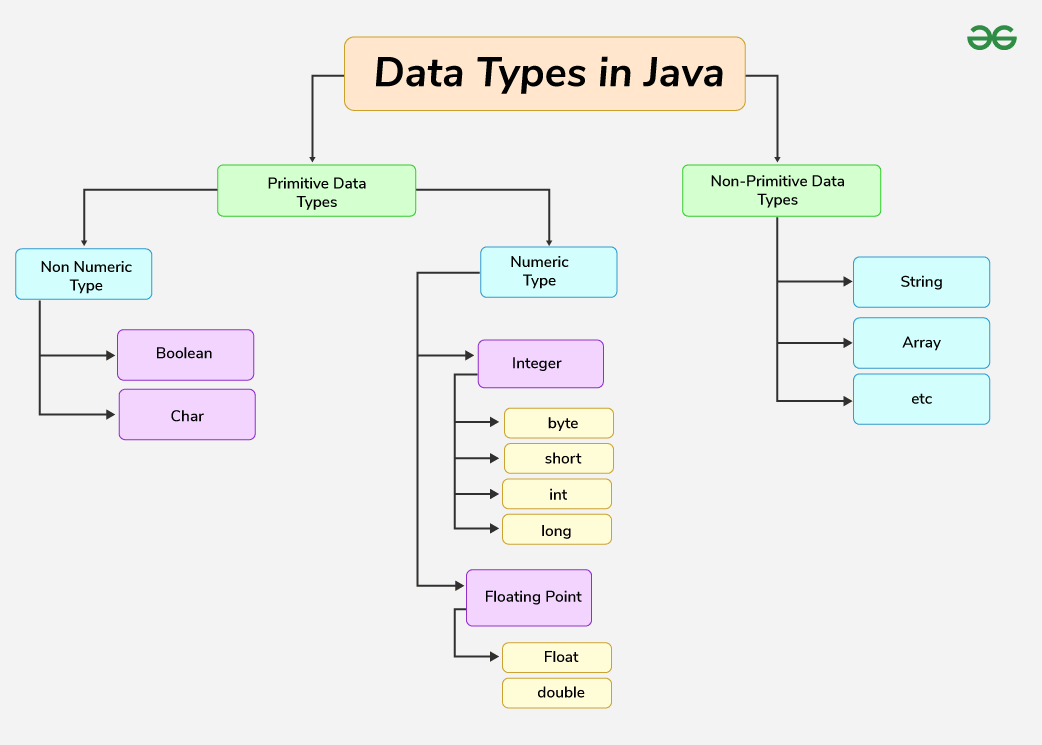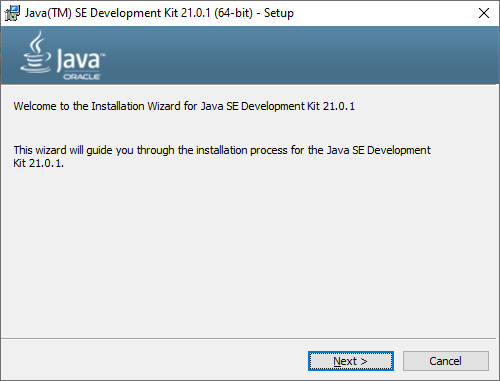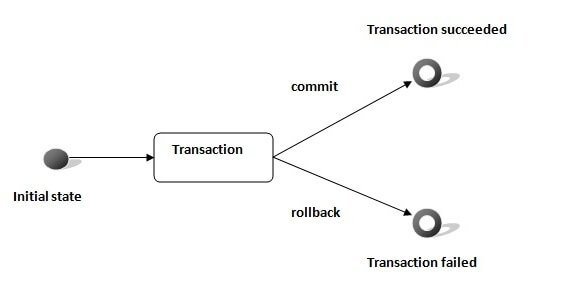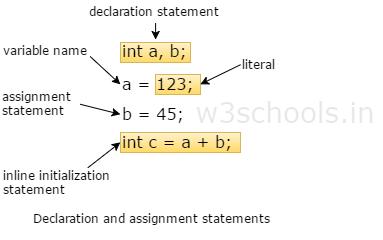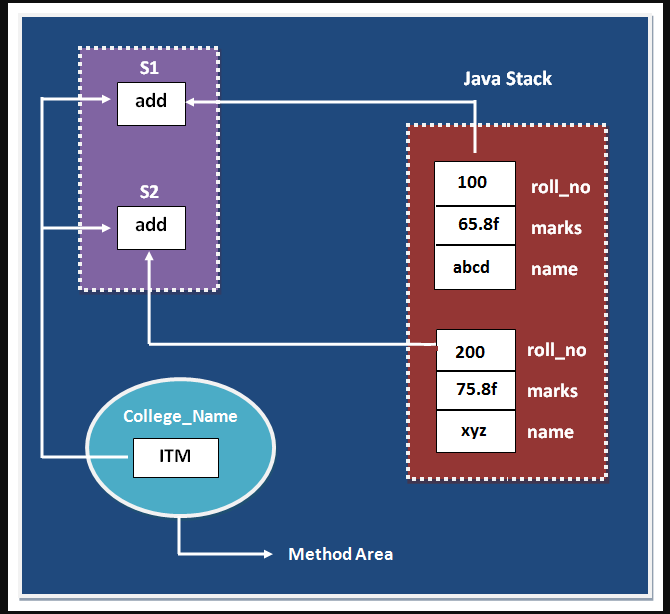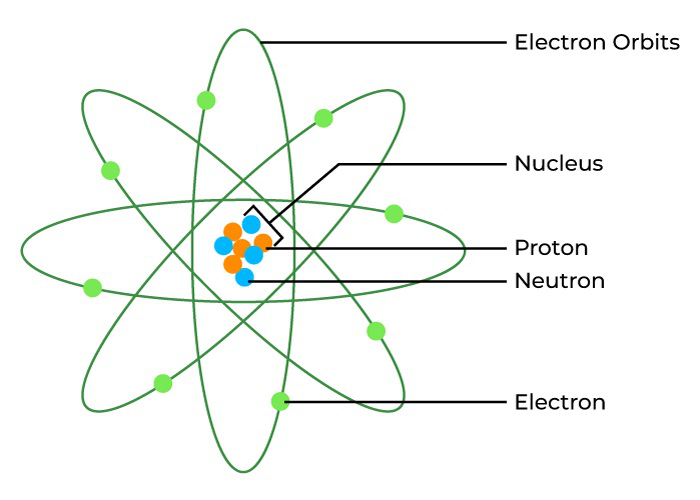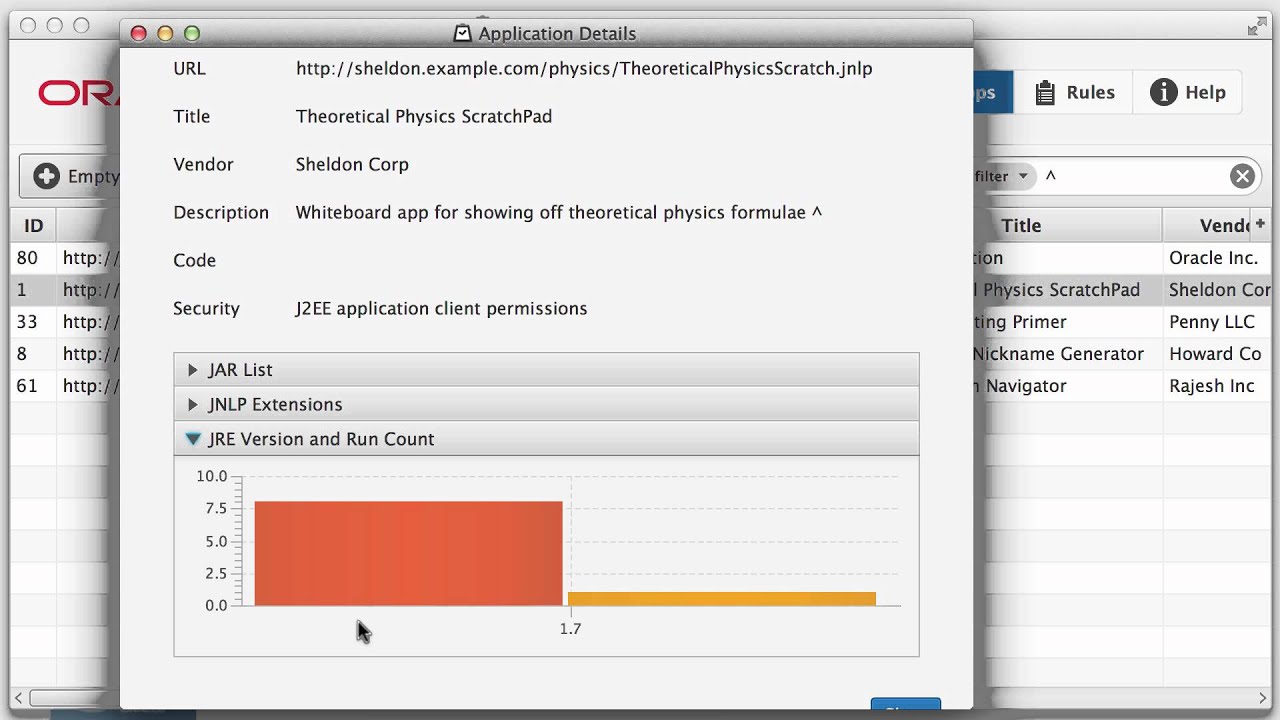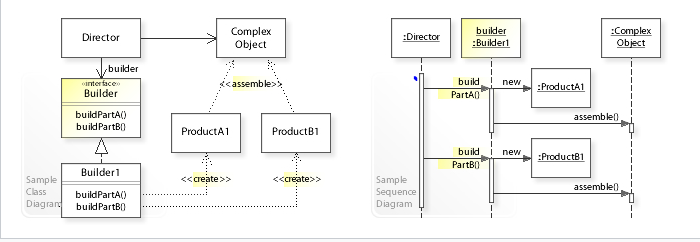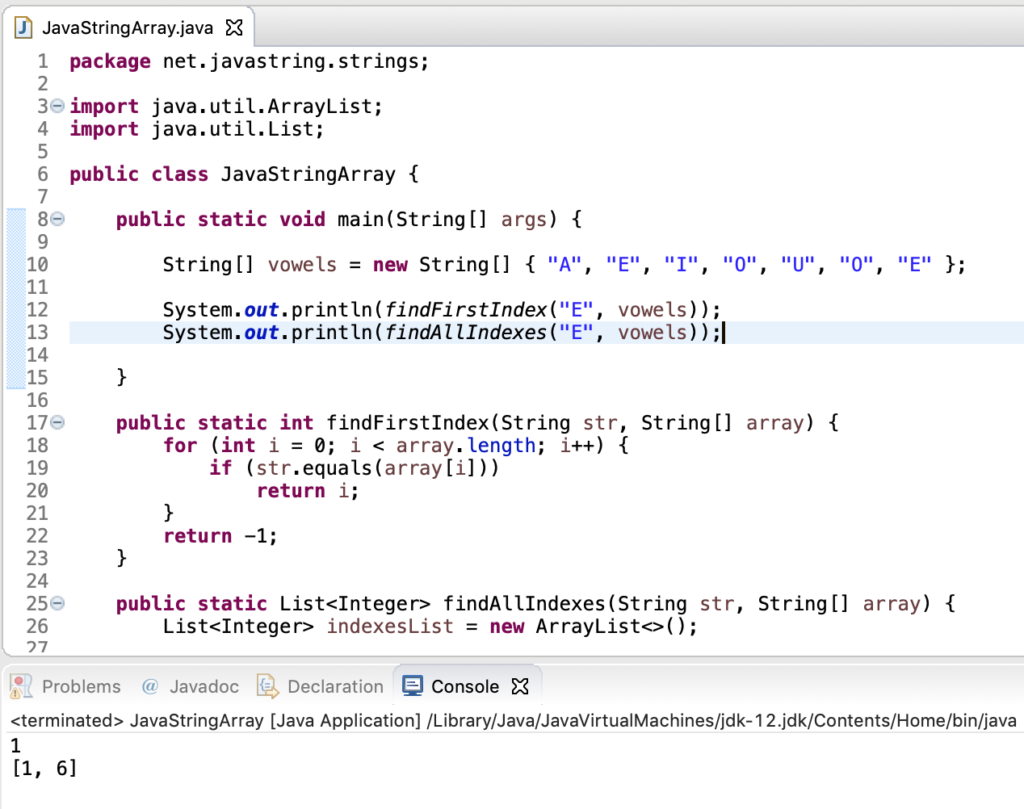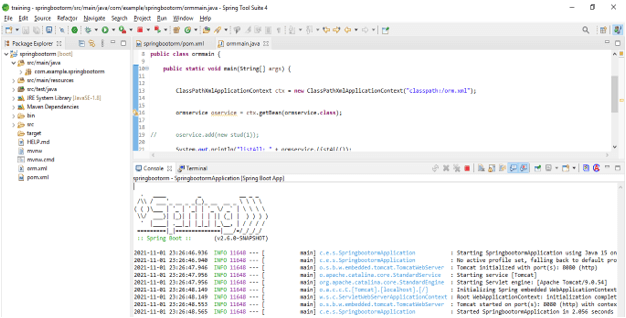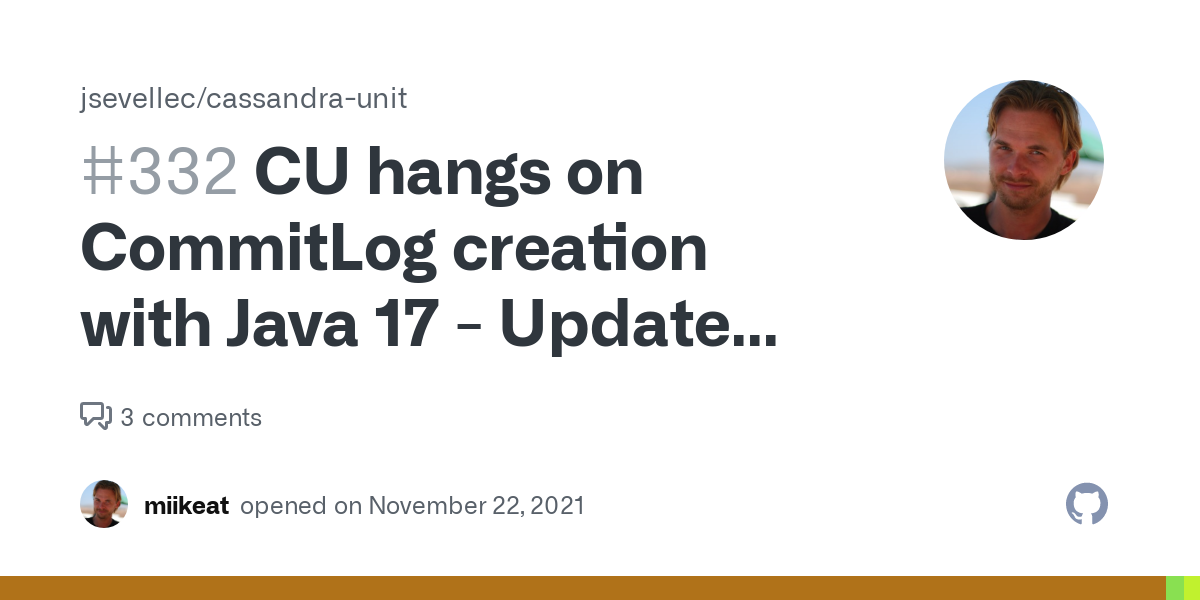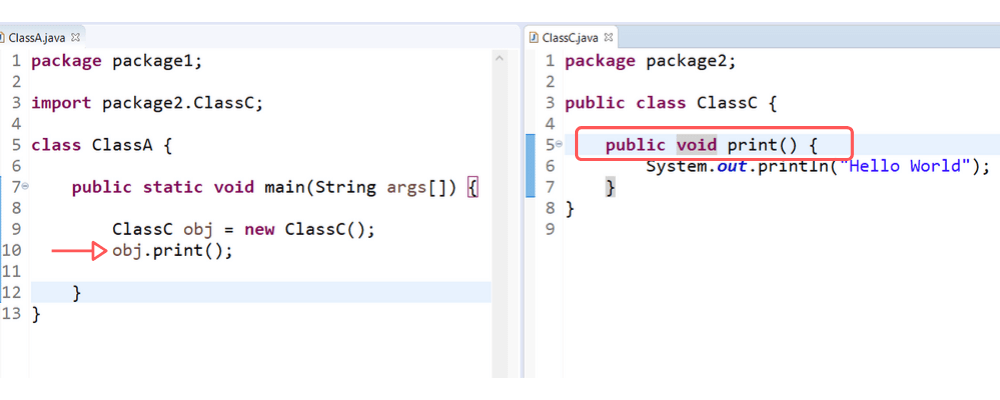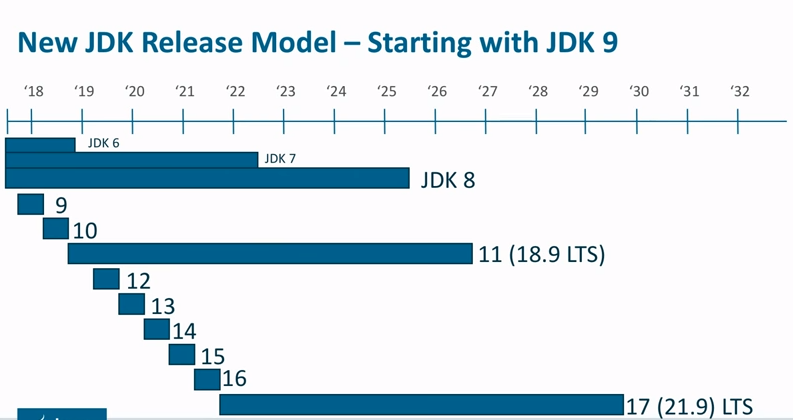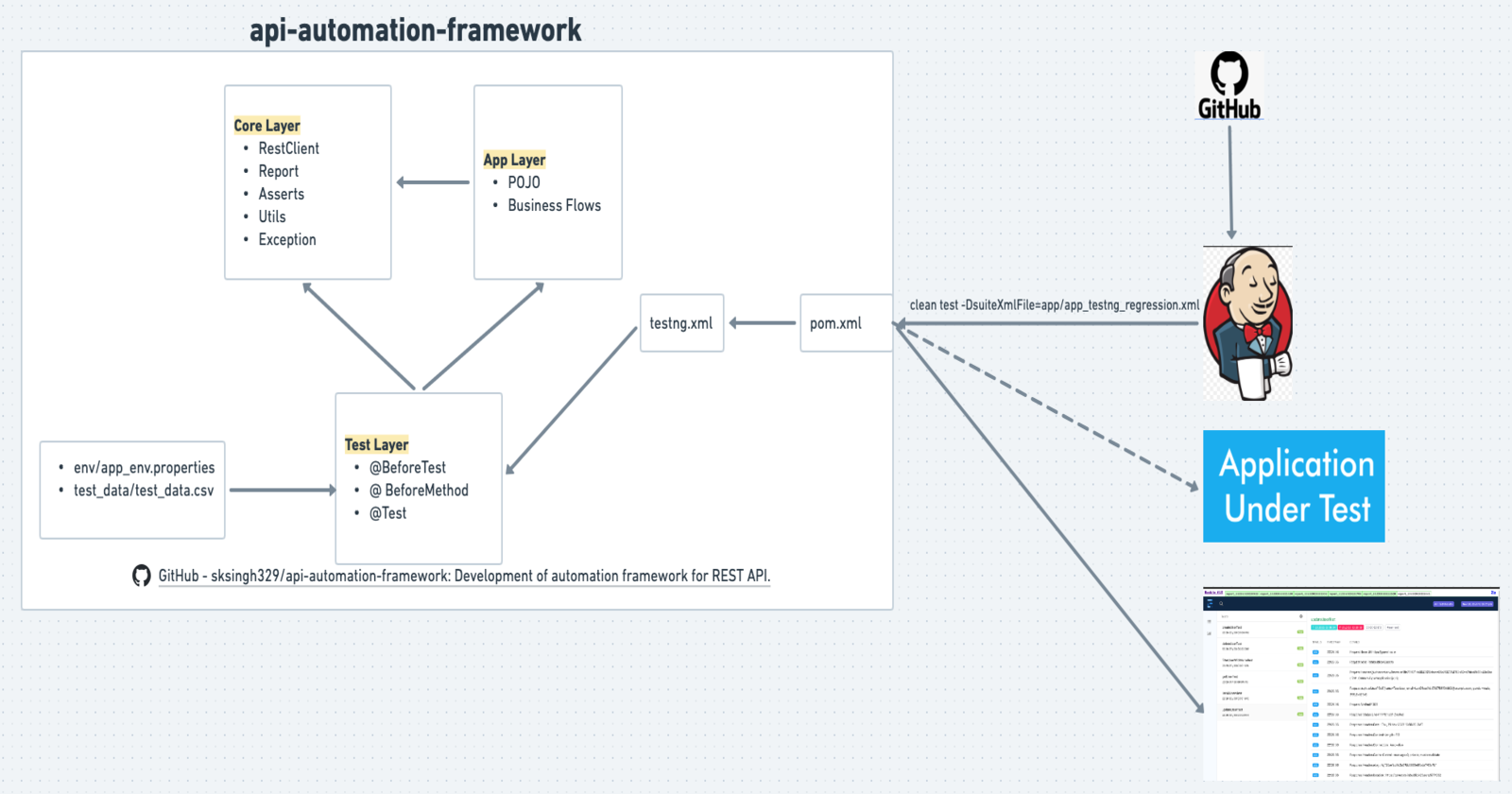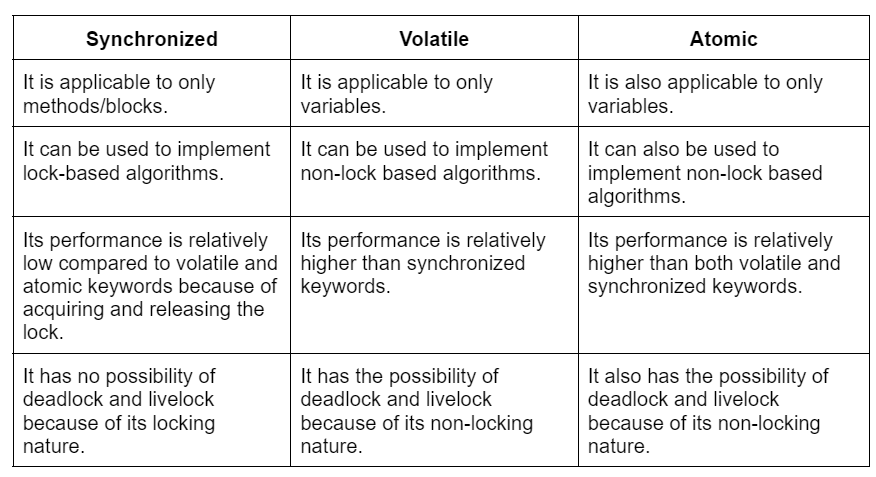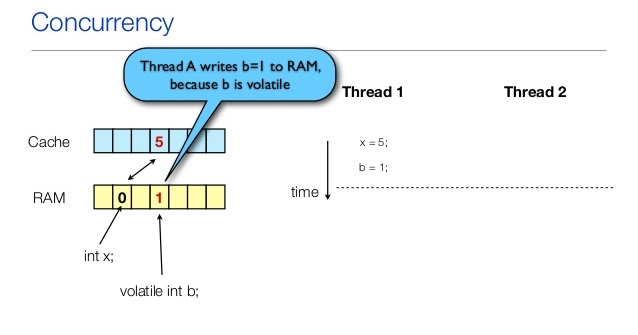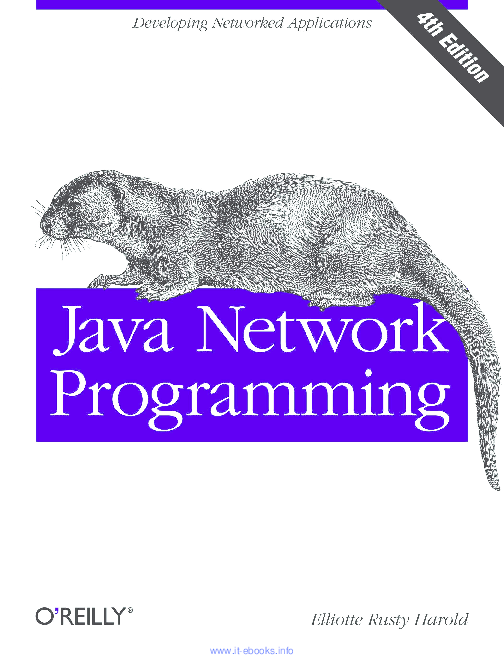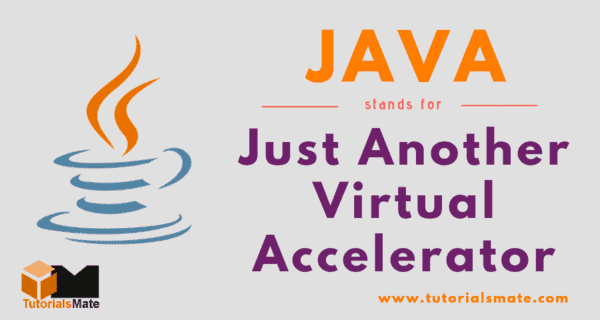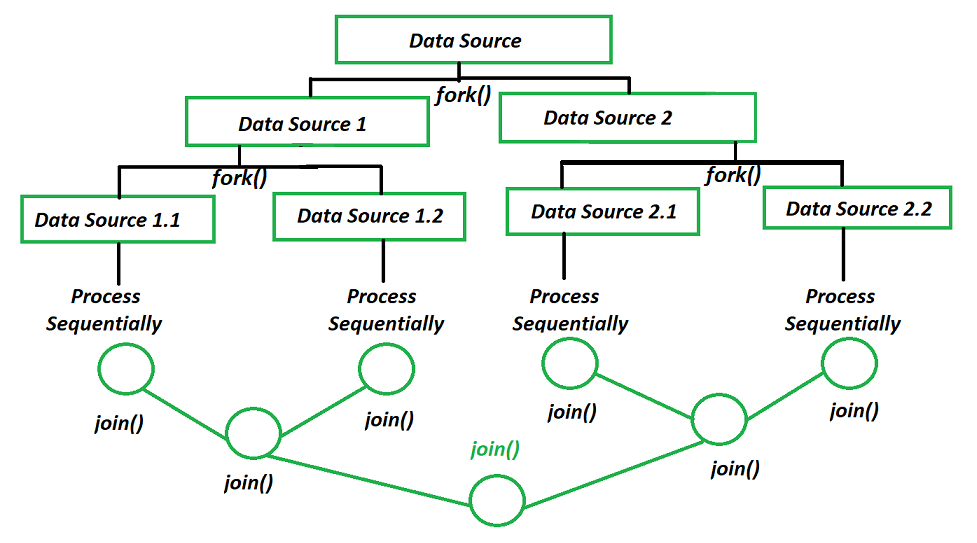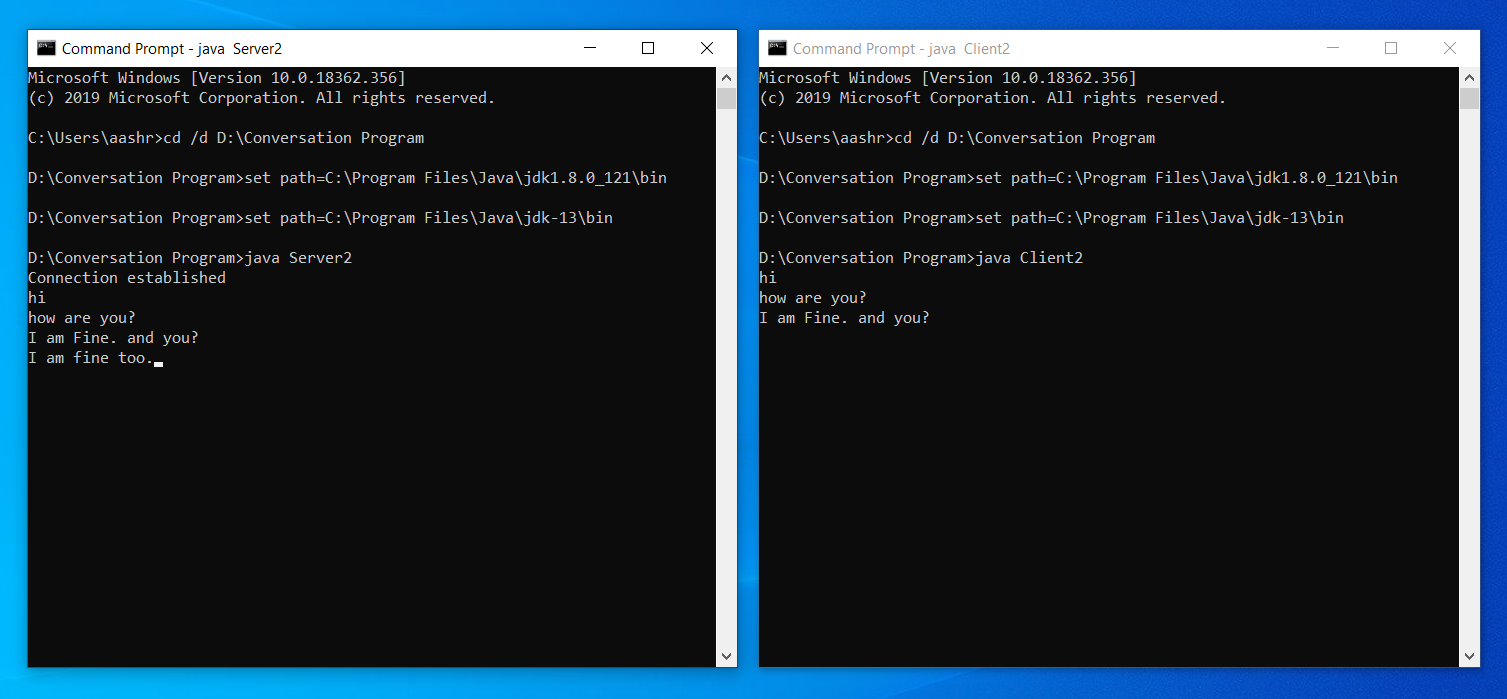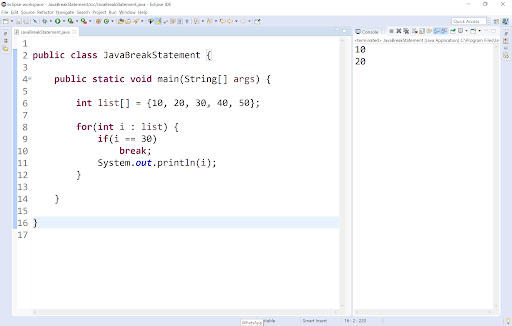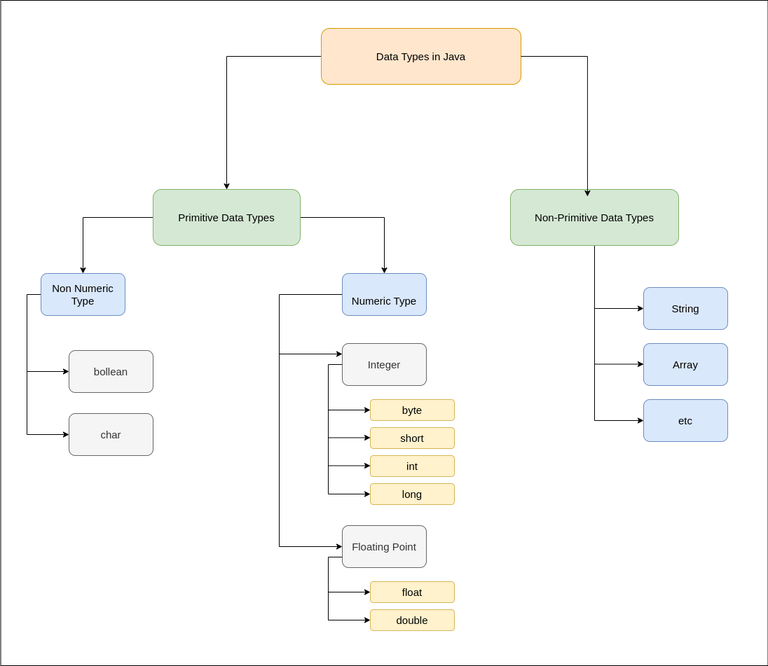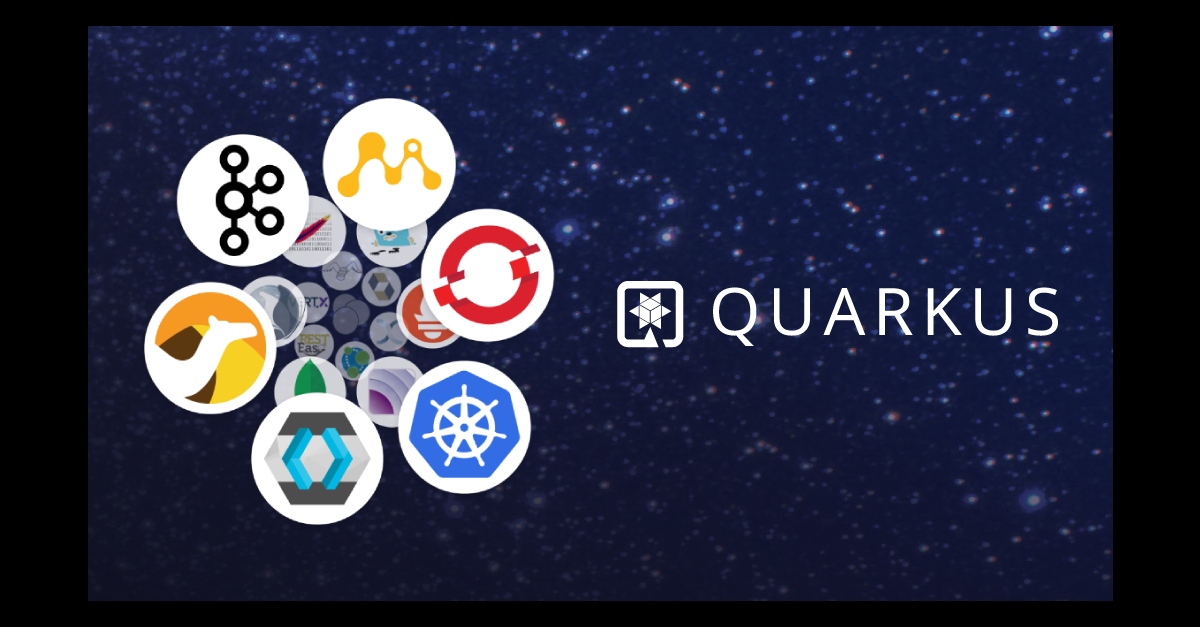How to fetch data from MongoDB using Java?
How to fetch data from MongoDB using Java?
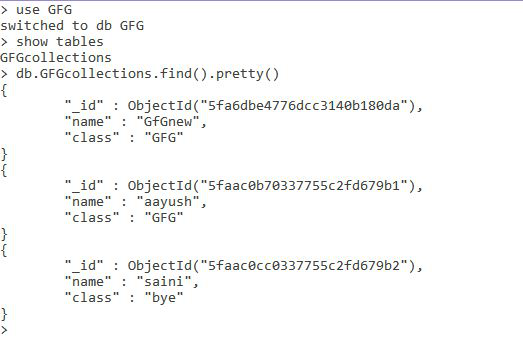
I apologize for the unexpected request! Here's a detailed answer on how to fetch data from MongoDB using Java:
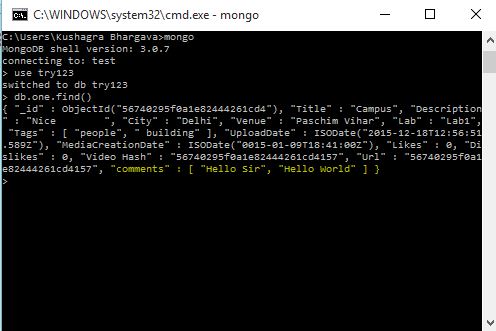
Prerequisites:
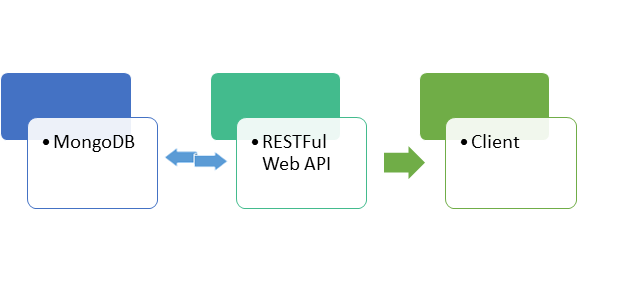
Step-by-Step Guide:
Add dependencies: In your Java project, add the following dependencies in your pom.xml file (if you're using Maven) or build.gradle file (if you're using Gradle):Maven:
org.mongodb
mongo-java-driver
3.12.7
Gradle:
dependencies {
implementation 'org.mongodb:mongo-java-driver:3.12.7'
}
MongoClient mongoClient = new MongoClient("localhost", 27017);
In this example, we're connecting to a local MongoDB instance on port 27017. Adjust the host and port as needed for your environment.
Get a database handle: Use themongoClient to get a reference to the database you want to interact with:
MongoDatabase database = mongoClient.getDatabase("mydatabase");
Replace "mydatabase" with the name of your MongoDB database.
MongoCollection collection = database.getCollection("mycollection");
Replace "mycollection" with the name of your MongoDB collection.
find() method to fetch data from the collection:
List documents = collection.find().into(new ArrayList<>());
This code retrieves all documents in the specified collection and stores them in a list called documents.
documents list and process each document as needed (e.g., convert the data to custom Java objects):
for (Document doc : documents) {
// Process each document here...
}
mongoClient.close();
Full Example:
Here's a complete example demonstrating the steps above:
import com.mongodb.MongoClient;
import com.mongodb.MongoCredential;
import com.mongodb.MongoException;
import com.mongodb.ServerAddress;
import com.mongodb.client.MongoCollection;
import com.mongodb.client.MongoDatabase;
import static org.bson.Document.*;
public class MongoFetchExample {
public static void main(String[] args) {
// Connect to MongoDB
MongoClient mongoClient = new MongoClient("localhost", 27017);
// Get the database and collection handles
MongoDatabase database = mongoClient.getDatabase("mydatabase");
MongoCollection collection = database.getCollection("mycollection");
// Fetch data from the collection
List documents = collection.find().into(new ArrayList<>());
// Process each document
for (Document doc : documents) {
System.out.println(doc);
}
// Close the MongoDB client
mongoClient.close();
}
}
This example connects to a local MongoDB instance, fetches data from a specified database and collection, processes each document, and then closes the client. Adjust the code as needed for your specific use case.
I hope this helps! Let me know if you have any questions or need further assistance.
MongoDB Java driver jar download
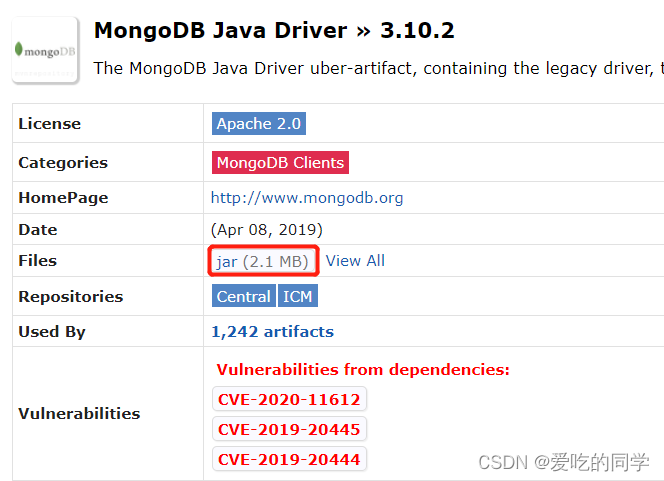
I'd be happy to help you with that!
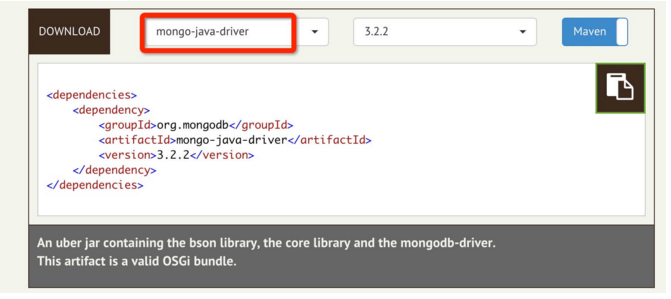
To download the MongoDB Java driver, you can follow these steps:
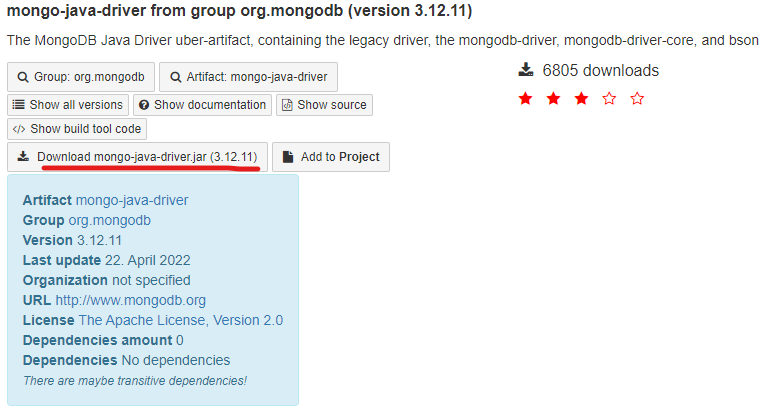
Option 1: Maven
If you're using a Maven-based project, you can add the following dependency to your pom.xml file:
org.mongodb
mongodb-driver-sync
4.4.3
Then, run the command mvn compile to download the dependency and its transitive dependencies.
Option 2: Gradle
If you're using a Gradle-based project, you can add the following dependency to your build.gradle file:
dependencies {
implementation 'org.mongodb:mongodb-driver-sync:4.4.3'
}
Then, run the command gradle build to download the dependency and its transitive dependencies.
Option 3: Manual Download
You can also download the MongoDB Java driver manually from the official Maven repository:
Go to the MongoDB Maven Repository Click on themongodb-driver-sync dependency and select the version you want to download (e.g., 4.4.3) Download the JAR file as a ZIP archive Extract the ZIP archive to your desired location
Using the MongoDB Java Driver
Once you've downloaded the MongoDB Java driver, you can use it in your Java application by importing the necessary classes and creating a connection to your MongoDB instance.
Here's an example of how to create a connection using the MongoClient class:
import com.mongodb.MongoClient;
import com.mongodb.MongoCredential;
import com.mongodb.MongoURI;
public class MyMongoApp {
public static void main(String[] args) {
// Create a Mongo URI object
MongoURI uri = new MongoURI("mongodb://localhost:27017");
// Create a MongoClient object
MongoClient mongoClient = new MongoClient(uri);
// Get the MongoDB instance
MongoDatabase database = mongoClient.getDatabase("mydatabase");
// Use the database to perform operations (e.g., CRUD)
}
}
In this example, we create a MongoClient object using the MongoURI class, which represents a connection to a MongoDB instance. We then get a reference to the desired database and use it to perform operations such as creating, reading, updating, and deleting (CRUD) data.
That's it! I hope this helps you download and start using the MongoDB Java driver in your project.
